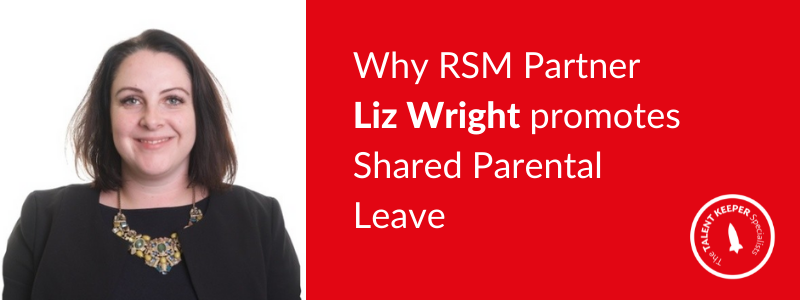Shared Parental Leave – What do Business Leaders Think?
We thank Liz Wright, a past coachee and Risk Assurance Partner at the global tax and audit firm RSM for this personal perspective on Shared Parental Leave.
I’ve long been a fan of all things Scandi, the brooding crime dramas, the pastries and their general approach to life. They have a different view on parenting from the common practice of leaving babies in prams outside shops, the focus of pre-school on interactive play and the success of their education system.

Shared Parental Leave in Scandinavia
In Sweden, parents are entitled to share 480 days paid parental leave per child. Each parent can transfer part of their leave to the other parent if they wish. Ninety days are, however, reserved for each parent and cannot be transferred to the other parent.
How do the Danes do it? Parents receive 52 weeks of paid parental leave and can split 32 weeks of leave however they wish.
And in Norway, parents can choose to take a combined total of 49 weeks at 100% pay or 59 weeks at 80% pay. In the case of 49 weeks this breaks down as 3 weeks pre-birth for the mother; 15 weeks non-transferable maternity quota; 15 weeks non-transferable paternity quota and then 16 weeks that can be shared as the parents see fit.
Although I can’t implement all of these nordic changes in my team (much as I would like, a morning Fika break for cake anyone?), one thing I have done is champion Shared Parental Leave.
Six fathers take SPL in Liz’s Team
I currently manage a large team of around 50 people, the vast majority of which are in their 20’s and 30’s. During the Pandemic we experienced something of a baby boom and over that period around six team members have utilised the option of shared parental leave taking between 6 weeks and 6 months leave.
Now, I am not a parent myself but I strongly believe in the power of shared parental leave for a number of reasons I have advocated to my team to utilise this option. In most cases, this was a simple as explaining the firms policy and how they could adopt it for their personal circumstances. For some, it was posing the question, ‘why would you not take it?’.
The benefits of men taking SPL to RSM
I perceive the benefits of shared parental leave for the team to be:
- A reduced impact on women’s careers. Parenting is not just a female responsibility. As a woman navigating a corporate career, I was aware of the perceived impact that career breaks can take on a developing career. By making it common place for all team members to take this option, it reduces the potential impact on female careers.
- Increasing equality. During the pandemic, for many of my friends, family and co-workers, the brunt of the emotional load of home management, childcare and home schooling was felt most acutely by women. By normalising a man’s role in childcare, it helps support female equality and shares the load.
- Less stressed new fathers. Taking time out of the business allows men to catch their breath and be present for their families in a way that normal life does not always cater for. Although working from home has allowed people to be more physically present, the parental leave also helps them to be mentally and emotionally present for their families.
- More fresh perspectives. Staff return with a new perspective and consideration of how to manage competing demands on their time. Its often been said that working mothers are the most efficient people in the workforce and I’m hoping that the same will be true for working fathers.
- Increased retention. Time will tell, but I’m expecting to see increased retention from those staff who have taken shared parental leave. It has potentially reduced their stress levels in the first few months and allowed them to return engaged in the team and the firm for supporting them through this period.
Levelling the playing field
Levelling the playing field for all my team and creating meaningful and sustainable roles and career paths is what drives me on a daily basis. In professional services, its important that we can support people through the various challenges of life and fit our approach to meet their needs and expectations. That’s why I’m embedding regular shared parental leave for all. It’s just one way of helping drive equality but one I am really proud that we have done.
Comeback coaching for returning colleagues
Executive comeback coaching helps employees identify and address any concerns or issues they have about their return to work. Executive coaching also helps employees better understand their value and potential to the business and, through a personal action plan, supports their transition back to work. Find out more.
Got a question about supporting colleagues taking maternity leave? E-mail Jessica jc@talentkeepers.co.uk or find us on Twitter and Instagram @talentkeepersuk.
By day, Liz is a Risk Assurance Partner at RSM delivering Internal Audit services in new and innovative ways. She is recognised as an Inspirational People Leader by her peers. By night, Liz indulges her passion for all things to do with leadership and management through her Youtube channel.




Leave a Reply
Want to join the discussion?Feel free to contribute!